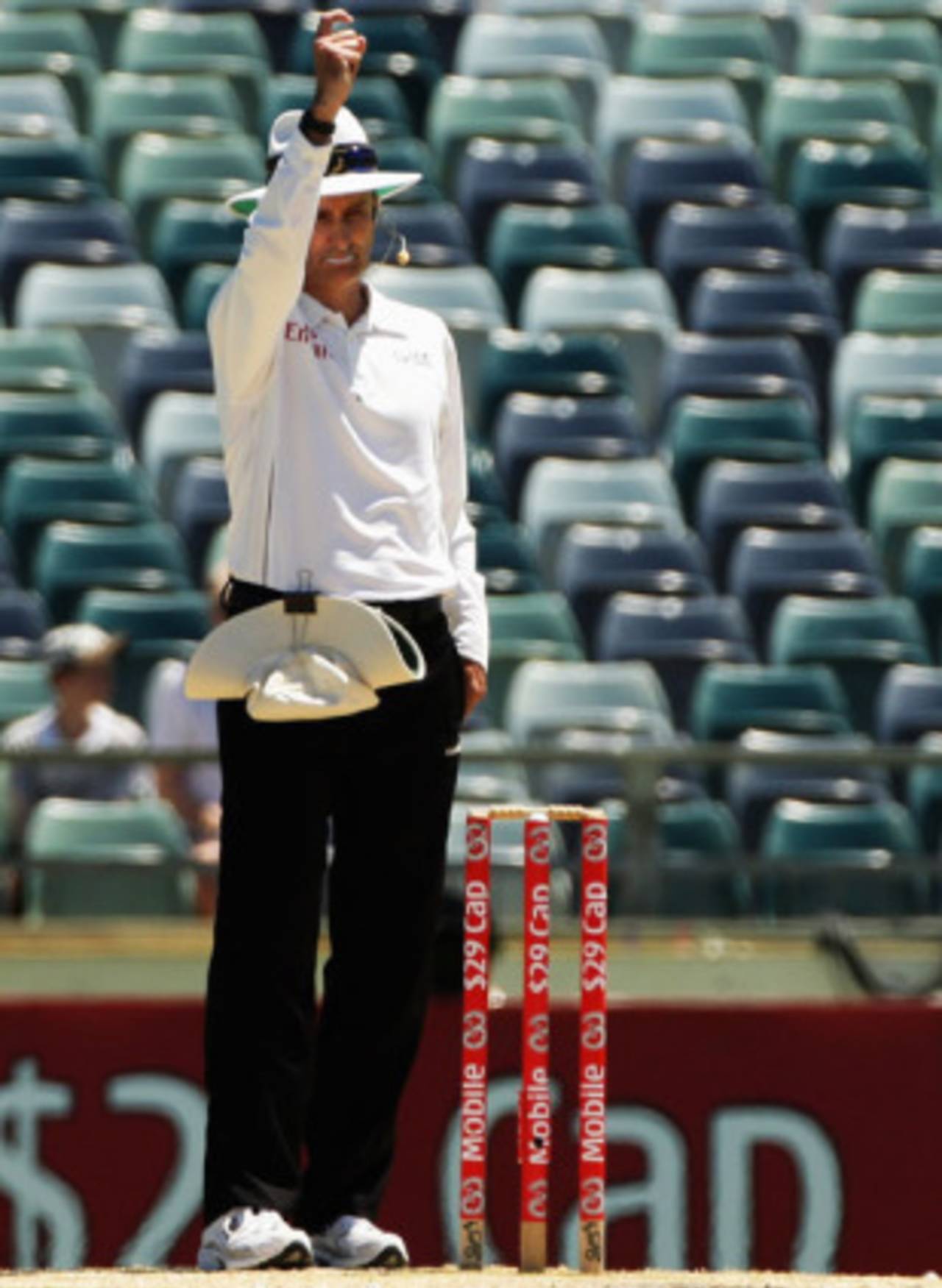Australia's cricketers have expressed reservations over the ICC's recently introduced Umpire Decision Review System and proposed day-night Tests. Although 87% of state and international players surveyed by the
Australian Cricketers' Association said they were in favour of the UDRS, 92% said they wanted to see better technology used to assist umpires in the decision making process.
The UDRS proved a major talking point throughout the recently completed
Frank Worrell Trophy series in Australia - right up until the final dismissal of Kemar Roach
in Perth - and it has polarised opinion within the Australian playing ranks. Precisely half of the surveyed Cricket Australia contracted players described the system as either successful or very successful, with 43 % unsure and seven % labelling it unsuccessful.
"Players would like to see the technology have the ability to definitively determine whether or not a batsman is out," Paul Marsh, the ACA chief executive, told Cricinfo. "Whilst players are supportive of the concept of using technology, they are yet to be convinced of the effectiveness of the current technology being used.
"It's human nature to expect technological tools to be foolproof and there's no doubt the new system is experiencing some teething problems. Now that the game has gone so far down the path of allowing technology to assist in on field decision making, the players would like to see the game invest in the technology being used so it's as good as it can be."
A week after David Morgan, the ICC chairman, suggested twilight Tests would be staged
within the next two years, the ACA survey found 57% of state and international players were opposed to the concept, up substantially from the previous year. Almost 30% of CA contracted players said they would be amenable to day-night Tests if an appropriate ball was developed, with another 21% willing to consent only for matches against minor Test playing nations. But with the majority against the concept, the ICC and CA could be facing a tough sell.
"The game does need to find an appropriate balance between the commercial and cricketing considerations," Marsh said. "Many players don't want to entertain day-night Test cricket because of the traditions of the game and the fundamental changes required. Others are more open-minded to it, however this is only on the proviso that the game isn't compromised by doing so.
"The most significant issue is whether or not a ball can be developed that can be used at night time. If an appropriate solution can be found I'm confident players and the ACA will be supportive of introducing day-night Test cricket. However, it does concern us that in some quarters there is talk of compromising the quality of the ball in order to introduce day-night Test cricket."
Meanwhile, the majority of surveyed Australian state and international players said they harboured some degree of concern over the World Anti-Doping Agency's controversial "whereabouts" clause, which was rejected by the Board of Control for Cricket in India earlier this year. Fifty percent of players said they were worried about the divulging of personal information to the drug testers, with another 13% unsure.
"Australian players wholeheartedly support the fight against drugs in sport and accept the need for an anti-doping policy," Marsh said. "The whereabouts requirements under the new WADA code are, however, onerous and have created concerns for players around the world.
"Having to advise the drug testing authorities as to your whereabouts for an hour a day, three months in advance isn't an easy task and we have contended that international cricketers are accessible enough for nearly all of the year given their current playing and training commitments. The ACA and players have, however, taken a pragmatic approach to this issue and will comply with the code in the interests of the overall fight against drugs in sport."
